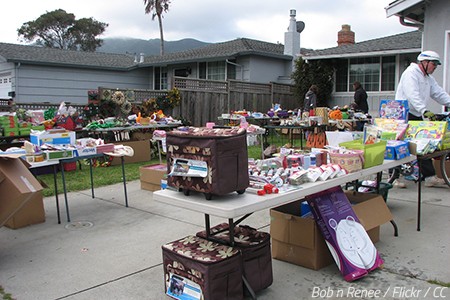 It’s no secret that moving across the country can be rather expensive.
It’s no secret that moving across the country can be rather expensive.
Compared to a local move, a cross-country relocation is always costlier due to the greater distances between the two locations. And when moving on a limited budget, finding ways to save money on a long-distance move becomes more important than ever.
Bear in mind that your hard-earned money is at risk when moving to a new home, so you should be very careful how you manage your budget throughout the move. Find good ways to minimize the moving costs and things should be just fine.
Here are the top 10 tips for saving money when moving long distance.
1. Pick cheap long-distance movers
It’s important to understand that different moving companies charge differently for the same services, so while it’s great to hire the best long-distance movers in your town or city, it’s even greater to use a cross-country mover that offers affordable moving services.
Moving across the country is an expensive affair so you can’t really expect to find a super-cheap moving company that will do an excellent job protecting and transporting your prized possessions. And yet, you don’t have to pay a fortune to hire a top-rated mover that’s affordable enough to fit your limited budget.
Here’s what you should do: ask in-home cost estimates from several reputable moving companies in your area. Once those on-site surveys are done, the moving experts will provide you with accurate moving quotes in writing.
And it’s when you have those precise moving cost estimates in your hands that you’ll be able to pick the mover with the most affordable moving rates.
Use our Moving Cost Calculator to get in touch with top-rated cross-country movers for in-house inspections. Remember that cost estimates done over the Internet (email) or over the phone can never be as accurate as you need them to be.
How to Find Cheap Movers in 10 Simple Steps
2. Negotiate a lower price with your mover
According to the American Moving and Storage Association (AMSA), the average cost of an interstate move is about $4,300 for a move distance of 1,225 miles and a shipment weight of 7,400 pounds.
As you can see for yourself, $4,300 is a lot of money, so you should do all in your power to bring that average cost down. Needless to say, the price you will pay for your cross-country move will be either lower or higher depending on your specific house moving parameters.
Another way to save money on a long-distance move is to try to negotiate a better deal with your moving company. It may sound impossible to do but it’s not – after all, moving company rates are not set in stone so a bit of negotiation can only work in your favor.
Ask the mover if they have any ongoing price discounts, promotional packages, or current deals that you are eligible for. In fact, you should take advantage of any offers by your moving company for reducing the final moving price. You’ve got nothing to lose here, only to gain, so don’t hesitate to attempt to negotiate a better price with your interstate moving company.
3. Move during the off-season (if possible)

Moving house during the off-season can help you save plenty of money.
One moving cost saving technique that you may not be aware of is that movers’ rates are cheaper during the off-season when there’s far less work for the moving companies. The off-season for the moving industry starts in September and lasts until May the following year – that is, those are the cold months of the year.
It may not be always possible to control your move-out date, but if it, make sure you use that unique trick to save money on your long-distance move. By avoiding the peak moving season (late spring, summer, and early fall), you can hire reputable long-distance movers for up to 20% less than the standard rates, or even less.
When moving long distance during the off-season, not only will you be able to move house for less money, but you’re also likely to have a much wider choice of good movers thanks to the greater availability of reputable moving companies during that period.
Also, keep in mind that, as a rule of thumb, it’s cheaper to move during weekdays roughly in the middle of the month.
4. Follow a moving checklist
A good moving checklist will enable you to organize your time in the best possible way. But how is that going to help you save money when moving across the country, you may ask?
The idea is simple enough: by being more effective and productive during the preparation period, you’ll make sure you finish the moving tasks as planned and on schedule. And what that means in reality is that you won’t have to hire extra moving labor to take care of what you couldn’t do due to lack of time.
In the best-case scenario, you’ll only pay professional movers to do what you can’t do, thus saving money from having to pay the pros for tasks that you yourself can do as long as you’re organized enough and have enough time until the move-out date.
A detailed moving checklist will guide you throughout the house move, including on Moving day itself and even the first few days after the move is over. It’s mostly about knowing what you should do next that will give you the unique chance to save plenty of precious time when moving across the country.
Moving Checklist: Interactive and Printable
5. Pare down your possessions
One excellent way to save money when moving long distance is to move only the items that make sense to be moved. It all comes down to understanding how the cost of moving is calculated for cross-country moves – the price will depend directly on the weight of the shipment. In other words, the more things you choose to take with you, the more money you will pay for their transportation, and vice versa.
So, inventory all your possessions and set aside for packing and moving only the things you love and the things you will need in the future. This way, in addition to lowering the transportation cost, you’ll also save money by using fewer packing materials, especially when it comes to moving boxes.
You don’t need to pack and move everything, do you? Out of all the stuff you’ve accumulated through the years, there must be items that you are clearly not worth moving to the new home. As a rule of thumb, the fewer items you move, the less money you will be charged by your cross-country moving company.
Declutter your home to save money.
20 Simple Ways to Reduce Moving Costs
6. Sell the unwanted stuff

Attempt to sell your unwanted items to add fresh cash to your budget.
There are various ways to save money when moving, but selling your unwanted items will actually go one step further – it will earn you some much-needed cash. And if you happen to be moving on a tight budget, you’ll be able to rid of the things you no longer need and add money to your fledgling moving budget – a win-win scenario for you.
If you have enough time and feel like it, one way to sell the things you’re not moving with you – or at least try to sell them – is to organize a successful moving sale. Another option is to post those items online and see if somebody will be interested in buying them.
Bear in mind that both scenarios will require time and effort to accomplish. So, if time is a luxury you can’t afford, the easiest way to get rid of stuff before moving away is to either give it away to friends or donate it to charity. Either way, you’ll be saving money by keeping the transportation costs to a minimum.
How to Get Rid of Stuff Before Moving
7. Score free moving boxes
When moving long distance, you should use each and every opportunity to save costs – after all, money doesn’t grow on trees.
When packing for a cross-country move, one of your biggest expenses will be the cost of packing supplies – boxes, bubble wrap, packing paper, and so on. And out of those packing materials, it’s the cardboard boxes that will put the extra strain on your relocation budget.
A single cardboard container is not expensive in any way. The problem comes when you do the math since the average number of boxes required to pack the content of one home is SIXTY.
Luckily, in most cases, you should be able to get second-hand moving boxes without paying for them. And when you do, you’ll be glad to have saved yourself a few hundred dollars’ worth of packing boxes.
The best places to score free moving boxes are from friends who have recently moved house or from local businesses that deal with cardboard containers on a daily basis and are required to recycle them at the end of the day.
Where to Get Free Moving Boxes
8. Use free packing supplies
Saving money when moving house usually comes to the little things – the ones that seem almost negligible at first but become an influential factor when you add them up.
Another good way to lower your packing expenses is to use free packing materials in addition to free packing boxes. Bear in mind that when packing fragile items, you’ll need plenty of bubble wrap and packing paper to make sure your breakables reach the destination home in one piece.
Again, your best bet to get free packing supplies is to ask friends, colleagues, or neighbors if they happen to have any materials they don’t need. Trying your luck at large retail stores can also prove to be useful, as is searching for free packing materials online at specialized websites such as Freecycle and Craigslist (the free stuff section).
Surprisingly, the best free packing materials are the alternatives ones that are found in your home: blankets, bed sheets, towels, rugs, and socks as padding materials and newspapers are space fillers. Of course, any moving containers you can use instead of standard cardboard boxes are fine: buckets, baskets, suitcases, drawers (yes, drawers!), bags, and so on.
Where to Find Free Packing Materials
9. Pack up your things by yourself

Organize a packing party and invite your best friends to it.
Sometimes the opportunity to save money when moving house comes down to a single decision – who’s going to pack up your things.
Now, paying professional packers to handle your household items – especially the fragile ones – is perfectly fine if you can afford it. Top-rated packers and movers come with their own professional-grade packing materials, so you don’t really have to worry about a thing.
However, if you’re really serious about saving money when moving across the country, then you’d better roll up your sleeves and finish the packing task on your own – hopefully, assisted by your good friends too.
Generally speaking, you shouldn’t hire other people for a service which you can do by yourself, and that’s especially true when you’re getting ready to move out.
When packing your things by yourself, there are two major questions that you will need to answer: 1) Do you have enough time to tackle the packing task prior to Moving day?, and 2) Do you know where to start packing and how to continue the packing process for best results?
Luckily, you can use a personal Packing Timeline to guide you throughout the home packing project – from Day 1 to right before your movers arrive.
Packing Checklist: Packing Timeline For Moving
10. Avoid costly mistakes
Regrettably, all your efforts to save money on a long-distance move may prove to be futile if you make a costly mistake.
Thus said, you can still be ok if you make a few minor mistakes that won’t lead to you losing too much money. But a serious mistake – like hiring the services of a dishonest moving company – could lead to a disastrous move where your money, time, and most importantly – your mental health – would be at risk.
Everybody makes mistakes… but you should do all in your power to avoid making any blunders – mostly judgment errors – that can really cost you.
Here are the top 5 mistakes you must avoid in order to prevent losing money on your next move:
- You fail to research your movers. Make sure you’re dealing with honest moving companies that won’t try to scam you in any way.
- You accept the very first offer. Compare at least 3-4 quotes from reputable moving companies to make an informed decision.
- You don’t create a moving budget. It’s important to have a preliminary moving budget in order to control your expenses.
- You entrust your valuables to movers. Keep valuable items with you or if not possible, purchase extra insurance for them.
- You purchase all your boxes brand-new. Consider using second-hand boxes in good condition to lower the packing expenses.
33 Moving Mistakes to Avoid on Your Next Move
The post Top 10 Tips for Saving Money on a Long Distance Move appeared first on The Moving Blog.







